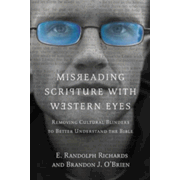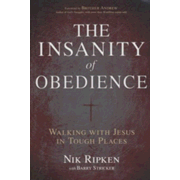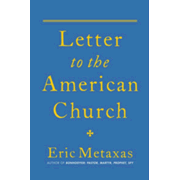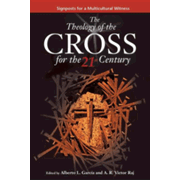 THE WORD of God spoken in many churches for the Fifth Sunday
after Epiphany, comes to us from the Gospel According to Saint Matthew. This
normative text taught by our Lord tells us of our called purpose, warns us about
dismissing God’s mandates as unimportant… and relates to us our personal
responsibilities as evangelical citizens of the kingdom.
THE WORD of God spoken in many churches for the Fifth Sunday
after Epiphany, comes to us from the Gospel According to Saint Matthew. This
normative text taught by our Lord tells us of our called purpose, warns us about
dismissing God’s mandates as unimportant… and relates to us our personal
responsibilities as evangelical citizens of the kingdom.
"You are the
salt of the earth; but if salt has lost its taste, how shall its saltiness be
restored? It is no longer good for anything except to be thrown out and trodden
under foot by men.
You are the light of the world. A city set on
a hill cannot be hid. Nor do men light a lamp and put it under a bushel, but on
a stand, and it gives light to all in the house. Let your light so shine before
men, that they may see your good works and give glory to your Father who is in
heaven.
Think not that I have come to abolish the law
and the prophets; I have come not to abolish them but to fulfill them. For
truly, I say to you, till heaven and earth pass away, not an iota, not a dot,
will pass from the law until all is accomplished. Whoever then relaxes one of
the least of these commandments and teaches men so, shall be called least in
the kingdom of heaven; but he who does them and teaches them shall be called
great in the kingdom of heaven.
For I tell you, unless your righteousness
exceeds that of the scribes and Pharisees, you will never enter the kingdom of
heaven.” (Matthew 5:13-20)
Grit or Grits?
Mixing salt into the textual pot here, the author of
Matthew drew much from the earlier written source material in Mark. Most scriptural experts agree, like making
grits from a recipe supplied by a loving grandmother, Matthew
received the writing of Mark. Matthew made editorial adjustments to fit the needed diet of the particular
community being addressed. The gospel followed to some degree, the recipe used by its
likely contemporary, the Lukan counterpart… in that both authors did some editorial
flavoring. The changing emergence of the Christian church across the fertile crescent during the scant decades
between the writings of Mark and the later gospels can account for these subtle
changes.
As example, we note
that Mark related the character of a person who should maintain the pure taste of the chief cook.., the Father... who has created all things. Mark closely
followed that analogy with a warning…
“Have salt in
yourselves, and be at peace with one another." (Mark 9:50b)
The
text of Mark thus gave commentary from Jesus about others who were reportedly working
beyond the immediacy of the disciples, but were doing good works in the name of
Christ Jesus. They were proclaiming the good news about the Messiah. Therefore
Mark used the text to highlight the misguided bent toward jealousy. Mark thus related
how Jesus did not approve of such attitudes.
However, when we
examine this text brought forward in both the Matthew and Lukan narratives, the
teaching coming from our Lord certainly remained the same in meaning.., but the
application changed.
Taste and See….
For example, our Matthean text was written and spoken to
persons removed in geography and time from Mark, and because of that shined great brightness on
the evangelical task. Thus the text remained the same, but the evangelical
emphasis arose higher some twenty years after the original publishing in Mark.
Therefore the text possessed this additional, spiritually normative quality for
Matthew’s particular Christian community. In this, the Word which is yet the Christ
of God, spoke subtly concerning their particular situation. Note that
the text relates that the salt, losing the taste, is thrown out and is “trodden
underfoot.”
May we rightly
conclude then, that the warning given by the author spoke immediately to the
issue that Christians gathering in and around Syrian Antioch were being
thrown out of the synagogue and were thus lost their evangelical “taste”. Consequently was the gospel being wastefully
trodden underfoot because the community did not keep actively stirring its
proper Christian cooking? It seems so!
The second analogy seems
similar in purpose, thus placing double emphasis. In Mark these two were used quite
separately. Here in Matthew, however, the author stated the lesson sequentially…
possibly to give a stronger flavor bite to the evangelical task at hand. In
Matthew, the Light of God, Jesus Christ.., provided for people great blessings
as he told his disciples that in themselves they had become the light of the world. Evangelical
purpose is thus Matthew’s accented flavoring.
 |
Misreading Scripture with Western Eyes: Removing Cultural Blinders to Better Understand the Bible By E. Randolph Richards & Brandon J. O'Brien |
About Substance!
Amid this good news and revelation of Christ as the Light of
the world, however, there were apparently many in the Matthean community that
worried about the Law and its purpose. In holding up the examples of both “jot and
tittle” (the smallest of written Hebraic alphabetic characters), Jesus related
that all the power of the Law still remained intact. In other words, as sinful
humans we are yet measured and yet found wanting. Further, our Lord stated
that we must exceed the righteousness of those who say that their very task is
to study and argue over each little dash of pepper in the lawful shaker. We
then wonder as listeners to this gospel reading, “How is adherence to this
recipe possible?”
Consider then. We are
brought in this text to the realization that for we sinful, disobedient and
finite children… there would be no hope outside of Christ. We would all become salt
without taste, persons groping in darkness… except that the Light has come upon
us. And because He came, was crucified, and rose again for us.., and continues through the Holy Spirit to give support... Jesus gave our
life in him a very pleasant taste.
The Light of God,
Jesus Christ our Lord, worked to show salvation through our evangelical
messages. It is only he… Jesus.., who fulfilled the Law. It is only the
innocent man Jesus, working with the Father through the Holy Spirit… who took
the bitter herbs from the sinful recipe. He offered himself on the cross…
And one of them at
once ran and took a sponge, filled it with vinegar, and put it on a reed, and
gave it to him to drink. (Matthew 27:48)
Yes! Jesus drank a
sinful, horrid recipe for us. It wasn’t without taste! But taste and see that
the Lord is good. Jesus makes our lives palatable. Jesus replaced the horrid
recipe of man’s inhumanity as convicted under the Law, and gave us the sweet honey of
forgiveness beneath the Gospel. This is the Gospel message that has shed Light.
This is good news for those who try to faithfully cook goodness in a dark world
that would separate us. This is also warning for those who would work to keep
our Christian witness hidden beneath a basket… to be thrown out along with the
mush of false religions. Consequently, like
the churches of Matthew and Luke hearing his words long ago, let us today be
like those who first shined the Light of salvation high. From Antioch of Syria,
the Word went out from Matthew to spread across the Middle East, the Greek provinces and Roman Empire. We
pray that as a people we may also become so focused on evangelism by the power of the Holy Spirit, that
what we cook up will be widely tasted. May we again tastily relish our
invitation to Word and Sacrament. Through this blend, may we become beacons to light a path and bring
all to an altar where our Lord is rightly praised. So it is written indeed in
the Word. So it is our calling… and so it shall be.




![562804: The Bondage of the Will [Hendrickson Publishers]](https://ag.christianbook.com/dg/product/cbd/b180/562804.gif)

